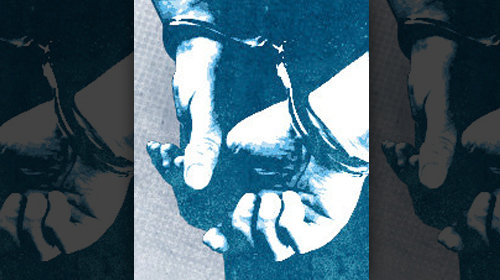
Today, the U.S. has the highest incarceration rate of any country in the world. With over 2.3 million men and women living behind bars, our imprisonment rate is the highest it’s ever been in U.S. history. And yet, our criminal justice system has failed on every count: public safety, fairness and cost-effectiveness. Across the country, the criminal justice reform conversation is heating up. Each week, we feature our some of the most exciting and relevant news in overincarceration discourse that we’ve spotted from the previous week. Check back weekly for our top picks.
Realignment, One Year Later: ACLU of California Sees Room for Improvement
California has 25,000 fewer state prisoners than it did one year ago, but it has added 7,000 beds to local jails, and plans to add 10,000 more. The ACLU of California is concerned that the state is missing an opportunity to lower its prison population with smart, sustainable reforms, and is instead simply shifting its overcrowding problem from prisons to jails. As a notable example, the state failed to pass even modest pretrial reform, meaning that local jails will continue to be 70 percent occupied by people awaiting trial because they can’t afford bail. The ACLU’s brief report identifies some chances for California to improve its response to Realignment in Year Two.
California Gives Juvenile Prisoners a Second Chance
Gov. Brown signed SB9, which will allow prisoners serving life without the possibility of parole for crimes they committed as a juvenile to ask a court to reduce their sentences to 25 years to life, but only if they have already spent 15 years behind bars, have worked toward rehabilitation and can prove they are remorseful. If the court agrees, the prisoner could appeal to the state's parole board for release after serving 25 years.
Early Indicators of Arkansas Reform Effort are Promising
A little more than a year after passing Act 570, Arkansas has seen a seven percent decline in its prison population—over 1,000 people—and has seen parole and probation revocations decline substantially, as well. Act 570 lowered sentences for some nonviolent offenses, mostly drug-related, and makes some prisoners convicted of nonviolent offenses eligible for parole earlier. The Act also lessened penalties for some parolees who fail to report to a parole officer or fail a drug test. You can find a complete summary of the law here.
A Case for Medical Parole Reform in Texas
In Texas, medical professionals can recommend elderly prisoners for medical parole, which the parole board can approve or deny based on public safety concerns. Last year, the board released about 100 prisoners under medical supervision, and a recent Texas Tribune article suggests that the program should be expanded. The article describes 62-year-old Donald Rash, who is too healthy to be eligible for medical parole: “He can’t stand without crutches, and his lawyer said he regularly misses meals because he can't walk to the prison cafeteria.” A recent report found that simply granting medical parole to the few that are already sufficiently infirm to be eligible would save the state $42.6 million in 2013, while only adding $1.57 million in parole costs.
Targeted Reentry Program in New Haven Shows Promise
With assistance from the Justice Mapping Center, New Haven officials have identified the neighborhoods to which most prisoners return, and are focusing their reentry resources on those communities. The New Haven Prison Reentry Initiative provides recently released prisoners with transitional housing and job training, and so far the small program boasts a recidivism rate of four percent.
Learn more about overincarceration: Sign up for breaking news alerts, follow us on Twitter, and like us on Facebook.
